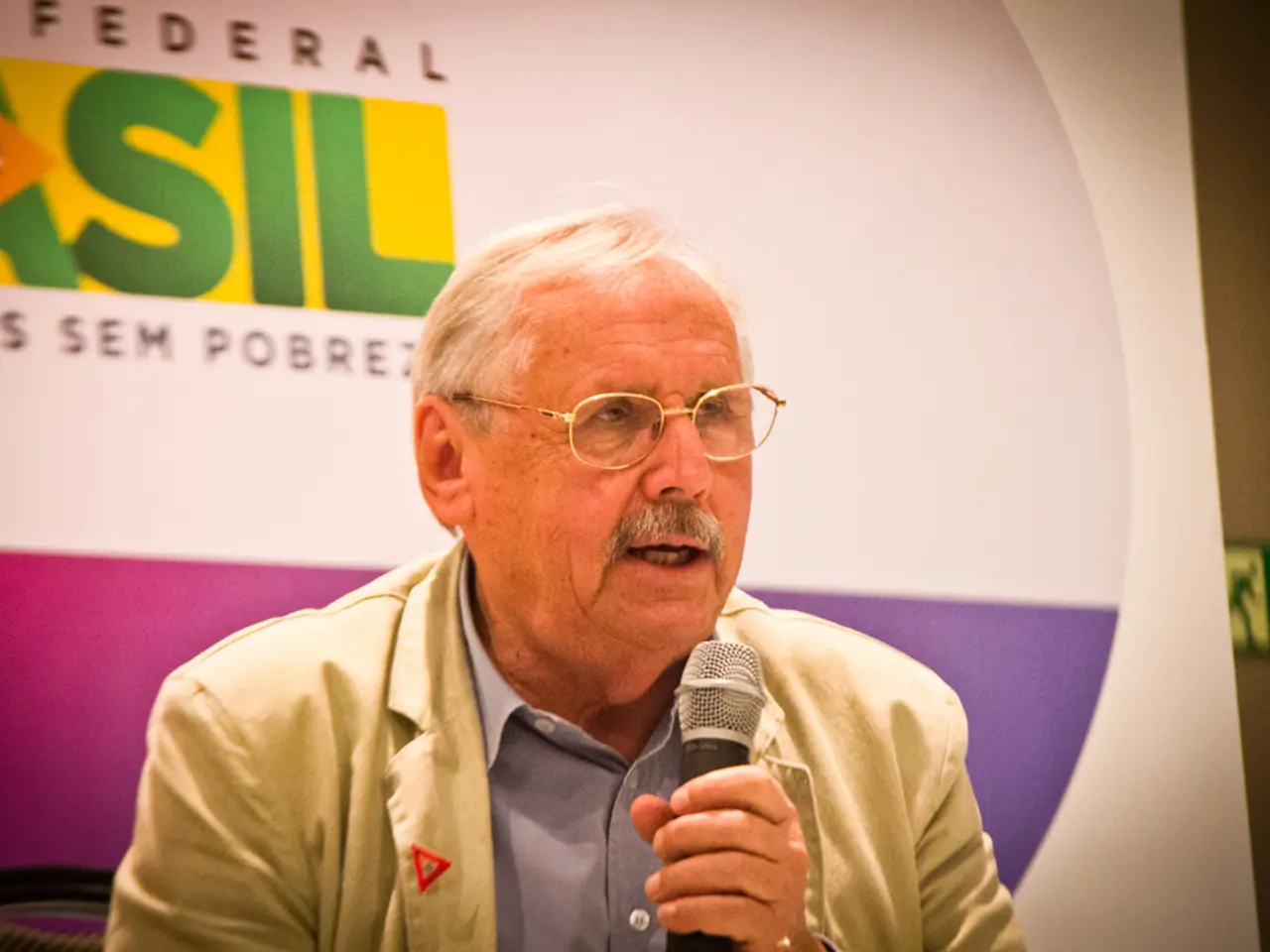Syrian authorities abandon negotiations with Kurdish representatives in Paris, following appeals from ethnic minorities for a federal government structure.
In a significant development, Syria's government has decided not to participate in the Paris meetings aimed at mediating differences with the Syrian Democratic Forces (SDF). The government views the SDF-led conference as a violation of the March 10 agreement and considers the SDF as a terrorist-linked group seeking to undermine Syrian unity and sovereignty [1][3][4][5].
The Syrian government, led by the new regime set up by rebel groups, has expressed its disapproval of the Paris conference, asserting that it is an attempt to internationalize the Syrian issue, invite foreign intervention, and impose sanctions. The government also argues that the proposals from the SDF meeting, such as creating a new "national army nucleus" and revising administrative divisions, contradict the March 10 agreement [1][3][4][5].
The strained relations between the Syrian government forces and the SDF have led to increased military clashes, including a fatal soldier death in Aleppo province. This escalation further complicates the political dialogue [2].
The Syrian government, however, has not ruled out the possibility of negotiations. A government official stated that while they will not negotiate with "any party seeking to revive the era of the defunct regime under any name or cover," they are open to dialogue on Syrian soil under Damascus' auspices to uphold Syrian sovereignty and territorial integrity [1][3][4][5].
Meanwhile, the US-backed, Kurdish-led SDF has resisted integrating into the new Syrian government despite agreeing to do so under a deal reached in March. The SDF commander, Mazloum Abdi, previously demanded a federal system, which the government has rejected [6].
In a separate development, the Syrian government announced that it plans to hold elections next month. No time frame has been provided for the process of drafting a new constitution [7].
In the SDF-controlled north-eastern city of Hassakeh, hundreds of representatives of ethnic and religious minorities called for the formation of a decentralized state and the drafting of a new constitution that guarantees religious, cultural, and ethnic pluralism. Ghazal Ghazal, the spiritual leader of Syria's Alawite minority, also called for a decentralized or federal system that protects the religious and cultural rights of all sections of the population [8].
The Syrian government views the situation in the north-east of the country as an alliance of parties harmed by the victory of the Syrian people and the fall of the defunct regime, along with some entities attempting to monopolize the representation of Syria's components by the force of the status quo [8].
This refusal by Syria's government to participate in the Paris talks and the ongoing military clashes between the Syrian government forces and the SDF highlight the complex and strained political landscape in Syria.
Sources: [1] https://www.reuters.com/world/middle-east/syria-says-will-not-take-part-paris-talks-mediating-differences-sdf-2021-05-06/ [2] https://www.aljazeera.com/news/2021/5/6/syria-says-it-will-not-take-part-in-paris-talks-mediating-differences-with-sdf [3] https://www.middleeasteye.net/news/syria-refuses-paris-talks-sdf-demands-integration-syrian-army [4] https://www.alaraby.co.uk/english/news/2021/5/6/syria-says-it-will-not-take-part-in-paris-talks-mediating-differences-with-sdf [5] https://www.france24.com/en/live-news/20210506-syria-will-not-take-part-in-paris-talks-mediating-differences-with-sdf [6] https://www.reuters.com/world/middle-east/syrian-kurdish-leader-slams-damascus-refusal-talks-2021-05-06/ [7] https://www.aljazeera.com/news/2021/5/6/syria-says-it-will-not-take-part-in-paris-talks-mediating-differences-with-sdf [8] https://www.middleeasteye.net/news/syria-refuses-paris-talks-sdf-demands-integration-syrian-army
- The Syrian government's stance against participating in Paris meetings illustrates a critical juncture in Syria's politics, as it finds the talks as a violation of the March 10 agreement and a threat to Syrian unity and sovereignty.
- The Syrian government and the SDF, backed by different powers, continue to clash militarily, with escalations like the death of a soldier in Aleppo province complicating the political landscape further.
- Despite the tensions, the Syrian government has left open the possibility of negotiations, conditional on the dialogue taking place on Syrian soil and under Damascus' auspices, with the goal of upholding Syrian sovereignty and territorial integrity.
- The US-backed, Kurdish-led SDF remains at odds with the Syrian government regarding integrating into the new Syrian government, with the SDF commander, Mazloum Abdi, still pushing for a federal system, which the government has rejected.
- In the SDF-controlled city of Hassakeh, ethnic and religious minorities have called for a decentralized state and a new constitution that guarantees religious, cultural, and ethnic diversity, countering the Syrian government's views on the region's affiliations and the representation of Syria's components.





